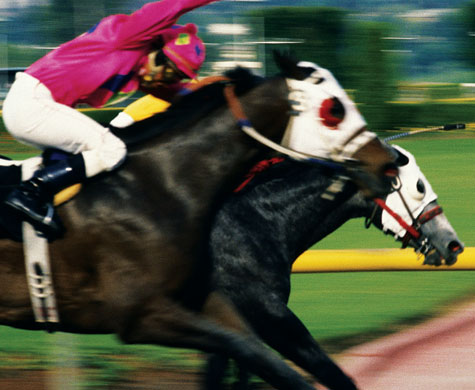I shared a few thoughts about emotions and eye pressure on FitEyes (see List of all the things that affect eye pressure), but I would love to hear comments from more of you. We often see that stress and anger can raise intraocular pressure. Who has tracked [other emotions] and eye pressure?
David
Dave, this is a very timely article as I experienced the flip side of this equation today. My wife and I have been renting and waiting a long time for the right property to come available to purchase. Anyhow, we seem to have found the perfect property today and were very happy and excited about it. HOWEVER, when I got home, I measured my pressures and my right eye was 27 (on drops and normally about 17)! If you have any insight on how to act depressed (haha) when happy or excited, please share!
Bailey
This is a subject that doesn't lend itself well to discussion in this format. This discussion works best in a dialog where we have a chance to overcome semantic issues and clashing preconceptions. Working through a discussion like this in a spoken conversation is best. That said, let me attempt an answer. (There are many ways I could answer this, depending on where the questioner is coming from. I would try to deliver the same understanding with each different explanation, however.)
This issue has to do largely with attachment and aversion which are functions of the ego. Attachment to any outcome is the issue. And being attached to an outcome that is beyond our control makes it worse.
Embracing reality is the solution.
I know you are joking about acting depressed when happy or excited. :) Obviously, that's no good.
Consider that along with the excitement of finding the right property you may be experiencing many forms of stress. For example, there's the possibility that this opportunity will slip away, that you will not be able to purchase the property. There is the possibility that something is wrong with the property. There are many possibilities for financial stress, deadline pressure, etc. The list of problems/concerns/issues is endless. Some of these are mixed up with the excitement you feel. (The proof is in your eye pressure.)
The IOP situation is different when you can directly feel the excitement in that moment with the absence of pathological egoic thoughts (including thoughts about what will happen in the future -- or even judgements about what is happening at the moment).
 This is the same situation I encountered when watching my favorite sports and measuring my eye pressure. See Watching Tour de France Raises IOP.
This is the same situation I encountered when watching my favorite sports and measuring my eye pressure. See Watching Tour de France Raises IOP.
Here is what I discovered after monitoring my eye pressure before, during and after watching sports over a period of several years.
- If you watch a sports event that you don't care about at all, it has almost no effect on your eye pressure.
- If you watch a sports event where your ego is caught up in the outcome of the event (i.e., you are attached to an outcome, such as your team should win) the excitement will raise your IOP.
- If you watch a sports event where you appreciate the action, enjoy the skill of the participants, etc. and are not attached to the outcome, your intraocular pressure will be largely unaffected.
The most intense emotions come when you are attached to an outcome. It is not unlike a drug. So we have to wean ourselves off that emotional drug and learn to appreciate the more subtle sensations that result when experience reality without layering egoic thoughts on top of it. When we feel pure excitement or pure joy in the moment, the emotions are not damaging. They are healthy. Actually, if we are really feeling whatever we are experiencing, it is OK.
As soon as we try to hang on to that emotion (attachment), or try to avoid a painful or unpleasant emotion (aversion) we have taken one step toward IOP problems. When we intensify the feelings by mixing emotions with an egoic narrative, we have taken another step. When we get out of the moment and start thinking about the future outcome, yet another step. When we become attached to that outcome (e.g., as a spectator where we have no control over the sporting event), IOP problems are almost guaranteed in my experience.
All of this sounds psychological, and indeed it may be, but for me the solution was mostly somatic -- not psychological. (I'm stating it this way to avoid repeating what I always say about what the solution is.)
Filed Under (tags):
- dave's blog
- Log in or register to post comments

